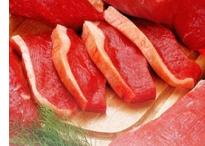Mad-cow disease
Japan suspends beef imports from Brazil on mad-cow disease
 Japan, Asia's largest beef buyer, suspended imports from Brazil after a cow in Parana state tested positive for mad-cow disease.
Japan, Asia's largest beef buyer, suspended imports from Brazil after a cow in Parana state tested positive for mad-cow disease.
"We suspended imports from Brazil as soon as an outbreak of BSE was confirmed," the Ministry of Agriculture, Forestry and Fisheries said yesterday, referring to bovine spongiform encephalopathy, or the brain-wasting disease known as mad cow.
Japan, which last year imported 1,435 metric tons of beef from Brazil, the world's largest exporter, will seek supplies from alternative exporters such as the U.S. and Australia. Other beef importers may follow suit, bolstering cattle futures in Chicago that rallied to a record last month and have gained 7.4 percent this year.
"The suspension will have no major impact on Japan's beef market as imports from Brazil represent a very small share," said Susumu Harada, senior director at the Tokyo office of U.S. Meat Export Federation. "Unless major importers of Brazilian beef suspend purchases, the impact on the international market will be limited."
Russia was the top importer of Brazilian beef in the first 10 months of the year, followed by Egypt and Hong Kong, data from the Trade Ministry in Brasilia showed. Priscilla Yip, a media relations officer at Hong Kong's Food & Environmental Hygiene department couldn't immediately comment. Cattle futures for February delivery lost 0.5 percent to $1.304 a pound on the Chicago Mercantile Exchange on Dec. 7.
Parana state
Brazil's Ministry of Agriculture said Dec. 7 that tests on a 13-year-old cow that died in Brazil's Parana state in 2010 showed it carried the "causing agent of bovine spongiform encephalopathy." The animal didn't develop the disease, nor did the agent cause its death, according to the Brazilian ministry.
Shipments from Brazil were limited to 0.3 percent of Japan's beef imports last year as meat from the South American country must be heat-treated before arrival on concerns about foot-and-mouth disease there. Japan imported 240,815 tons of beef in the first half of 2012, with 24 percent coming from the U.S., according to the ministry. Australia was the largest supplier at 153,938 tons.
The health ministry will next year relax to 30 months from 20 months the maximum age of cattle from which U.S. beef can be imported, according to Hideshi Michino, director at the ministry's food-safety department. The threshold was imposed to safeguard against mad-cow disease, as the U.S. found its first case of BSE in 2003. The risk of BSE may be lower in cattle younger than 30 months, scientists have said.
Brazil has shipped $4.2 billion worth of the meat through September this year, up 5 percent from a year earlier, according to information on the exporter's association website. Russia is the biggest importer, buying about 20 percent.
JBS SA (JBSS3), the world's largest beef producer, fell the most on the Bovespa index on Dec. 7 on speculation Brazilian exports may be halted on mad-cow concerns.
(Published by Bloomberg - December 10, 2012)